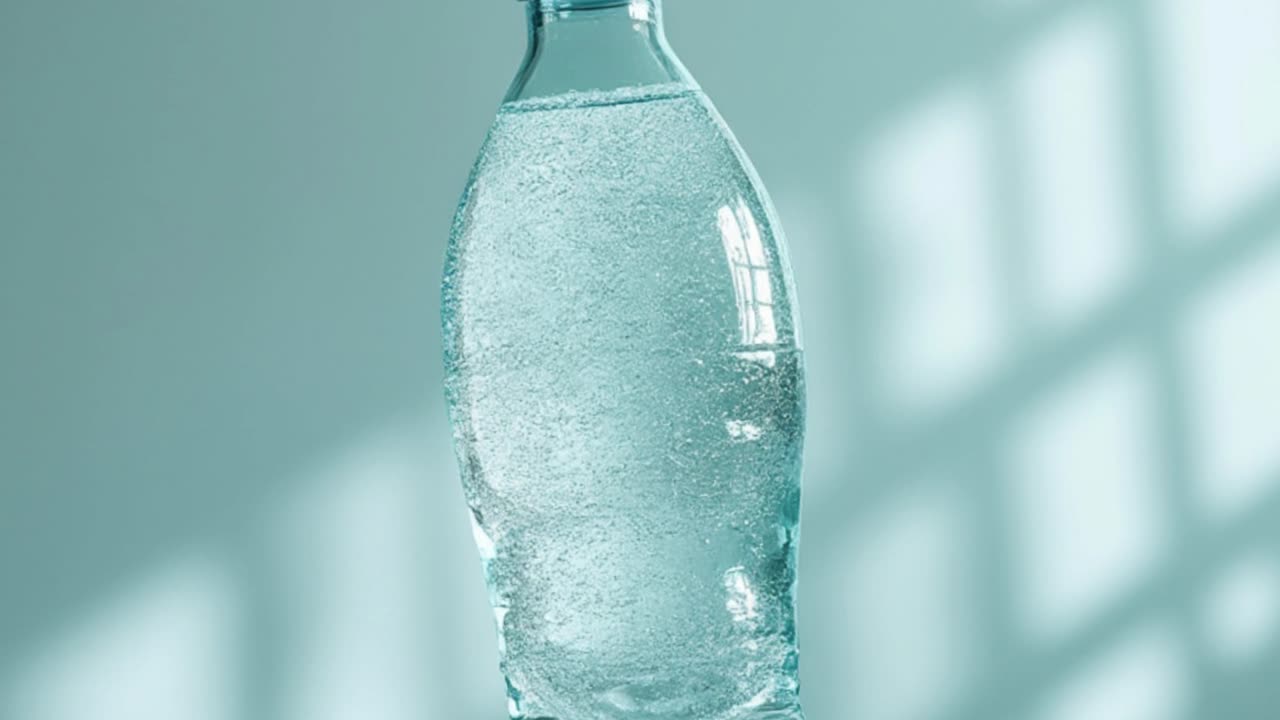Premium Only Content

Microplastics No More? MIT's Biodegradable Breakthrough!
Save money, buy cheap here: USA: https://amzn.to/3CEt24d or Europe DE: https://amzn.to/4i3iQCw or Europe UK: https://amzn.to/49hxylx
Microplastics No More? MIT's Biodegradable Breakthrough!
We create a news channel fully dedicated to the fastest information from the world. Your news on every topic and without secrets. We deal with politics, but also science, entertainment and the world of Stars. If you are looking for information about politicians you have come to the right place. If you are looking for mysteries, secrets and curiosities about celebrities and politicians, it's good that you are here.
The latest news and information, as well as news from around the world and Poland regarding technology, science and health. Are you looking for equipment reviews, opinions of other people? You will find out information about phones, tablets and others. Everything you need to know about Artificial Intelligence, i.e. AI, as well as Tesla and SpaxeX.
Microplastics, minuscule plastic particles found across the globe, are a pervasive environmental concern. These tiny particles originate from a variety of sources, including the wear and tear of tires, fibers from clothing, and the breakdown of plastic packaging. They are also intentionally added as microbeads to personal care products like cleansers, cosmetics, and other beauty items, further contributing to the problem.
Recognizing the urgent need for a solution, a team of researchers at the Massachusetts Institute of Technology (MIT) has developed a groundbreaking, biodegradable material that could potentially replace these harmful plastic microbeads. This innovative material offers a promising avenue for reducing microplastic pollution and promoting a more sustainable future.
The new material is ingeniously crafted from polymers that are designed to decompose into harmless substances, namely sugars and amino acids. Ana Jaklenec, a researcher at MIT's Koch Institute for Integrative Cancer Research and a key member of the development team, emphasizes the importance of this approach: "It’s important to not only clean up existing microplastic pollution but also create materials that don’t add to the problem."
Beyond their application in beauty products, these biodegradable particles have demonstrated remarkable versatility. The researchers have shown that they can be used to encapsulate essential nutrients, such as vitamin A, providing a potential solution to nutrient deficiencies affecting an estimated two billion people worldwide. This dual functionality further underscores the potential impact of this innovation.
The team's significant work, spearheaded by Jaklenec and Robert Langer, was recently published in the esteemed journal Nature Chemical Engineering. The study's lead author, MIT graduate student Linzixuan Zhang, played a crucial role in developing a material that is not just environmentally sound but also adaptable to various applications.
While the concept of biodegradable plastics is not entirely new, many existing alternatives have limitations and can still contribute to pollution. In the year two thousand nineteen, the MIT team had initially developed a polymer called BMC for nutrient encapsulation. However, when the European Union classified BMC as a microplastic and subsequently banned it, the researchers were spurred to find a new, more sustainable solution.
Their efforts led to the creation of a new class of biodegradable polymers called poly(beta-amino esters). These polymers have the remarkable ability to break down completely in the environment. By meticulously adjusting the building blocks of these polymers, the researchers were able to fine-tune their properties, including water resistance and strength. This fine-tuning resulted in a material ideally suited for replacing microplastics in a variety of products. Importantly, the newly developed particles dissolve readily in acidic environments, such as the human stomach, rendering them safe for potential use in food products.
The researchers showcased the practical applications of their biodegradable particles in two key areas: food fortification and personal care products. They successfully encapsulated vitamins A, D, C, and E, as well as minerals like zinc and iron, within the particles. This encapsulation process effectively shields these vital nutrients from degradation caused by heat, light, and humidity, ensuring their potency over a period of several months. To demonstrate the real-world applicability of this technology, they added the nutrient-loaded particles to bouillon cubes, a staple ingredient in many African countries. Remarkably, the nutrients remained intact even after the bouillon cubes were subjected to two hours of boiling, demonstrating the robustness of the encapsulation.
#science #tech #facts
-
 1:37
1:37
SUPERTOPNEWS
9 hours agoElon Musk Creates the Largest Artificial Intelligence Supercomputer
53 -
 2:03:46
2:03:46
LFA TV
17 hours agoTIME FOR A NEW SPEAKER! | LIVE FROM AMERICA 12.26.24 11am EST
49.3K30 -
 1:40:22
1:40:22
Game On!
14 hours ago $4.74 earnedNFL Thursday Night Football Seahawks at Bears EXPERT Picks!
39.7K9 -
 1:50:54
1:50:54
xBuRnTx
3 hours agoWho's Ready for New Years!
29.2K1 -
 12:09
12:09
Tactical Advisor
16 hours agoSmith & Wesson Shield Plus Carry Comp
23.8K1 -
 4:35:25
4:35:25
Father Russell
9 hours agoDelta Force | Not A Woman? | Mad Martigan Time
64.7K5 -
 3:29:42
3:29:42
BrookieMonster
16 hours ago $44.71 earnedChristmas Stream: Marvel Rivals with CallmeSeags 🎄
183K13 -
 LIVE
LIVE
TheSaf3Hav3n
4 days ago| RUMBLES FIRST SUBATHON IS HERE!!! | DAY 4 |
284 watching -
 6:54
6:54
Dr. Nick Zyrowski
4 hours agoHIGH PROTEIN DIET Fixes Your Metabolism! - Weight Loss Not Required
19.4K5 -
 3:14:33
3:14:33
Joe Donuts Gaming
18 hours ago🟢 Live : Christmas is Here!! | Fortnite, Caroling, Light Tours and Donos !!
95.6K15